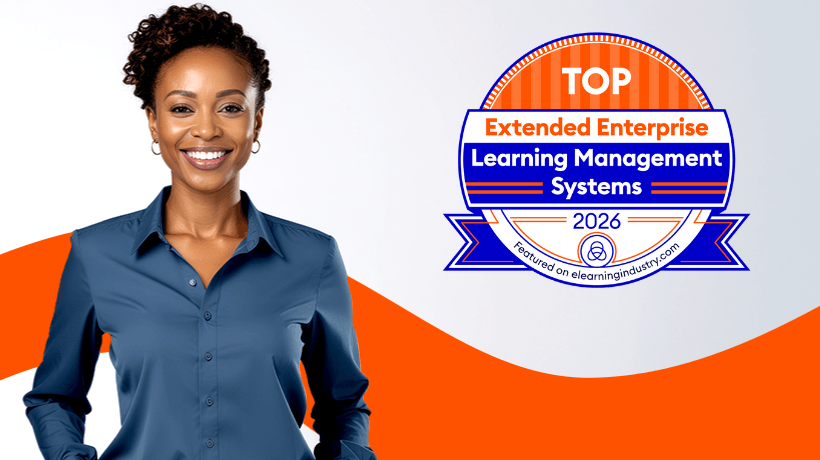What The Benefits Of Using An Extended LMS For Modern Workforce Training Are
Traditionally, many organizations do not think about providing eLearning beyond the four walls, that is, training their external workforce. With technological development, an increasing number of organizations are shifting toward delivering extended workforce learning. Therefore, the Learning Management System (LMS) for the extended workforce is deployed to train the external learners more effectively and engagingly.
The primary aim is to improve individual behavior by training dealers, sales representatives, and other external employees regarding the organization's products and services. The utilization of an extended LMS enables organizations to reach out to a wide range of audience through the same platform. It’s a good opportunity for those who are not employees but require effective training on the company's products and services. With an increasingly widened scope of extended workforce training, organizations are now investing in the deployment of a modern LMS to achieve profitable business outcomes:
- Today, industry leaders recognize not only the value of what Learning and Development brings to the organization but also the value of how an extended LMS helps to generate revenues. Approximately, 40% of the organizations getting revenues through external workforce training have highlighted an 18% increase in the past two years. As a result, around 55% of the organizations saw an improvement in their customer relations, thereby increasing employee retention by 41%.
- When it comes to training external workforce, the role of mobile learning technology becomes significant. It is crucial for organizations to analyze the results of training the extended workforce. Therefore, training content is delivered through personalized mobile devices, such as smartphones and tablets, to cater to the learning needs of globally dispersed audiences. For instance, if the learning audience is sales oriented, organizations may need to deliver just-in-time learning so that learners undergo training anytime and anywhere.
- As per a research study, around 56% of the organizations found that their training and development efforts for extended personnel are beneficial. For instance, extended eLearning platforms can help provide training to customers spread across diverse demographics. As a result, it can improve customer retention, enhance engagement, and increase the overall business revenues. Organizations conduct surveys and assessments to evaluate the overall effectiveness of extended enterprise learning.
Using Single Extended eLearning Platform For Multiple Audiences
Today, extended learning programs serve as an optimal way to manage training for internal and external learners. A modern LMS for an extended enterprise caters to pertinent needs of learners from varied job profiles. These include:
External Partner Training
Organizations in various sectors such as retail and telecom have independent channel partners that resell products and services across the globe. As external partners are spread across different locations, a robust LMS helps bridge geographical barriers by providing relevant training content across multiple mobile devices. Consequently, external partners undergo training anytime and anywhere, thereby improving overall customer satisfaction and business productivity.
Training Sales Professionals
Every business focuses on the common goal of improving revenues. For this, enterprise LMSs have evolved to an extent that organizations are able to reach geographically-spread sales employees. Organizations deploy eLearning platforms to adopt a blended learning approach for salesforce training by:
- Creating short and easily digestible training content in the form of short quizzes, interactive games, videos, and other formats, which can be accessed at the point of need and even on the go.
- Following the process to organize group meetings and improve the knowledge competency of every learner.
- Collating data to assess individual feedback, participation levels, and the overall impact of training on the salesforce performance.
Dealer Workforce Training
Organizations from diverse industry verticals face the challenge of training their dealer workforce located worldwide. So, extended LMSs are seamlessly integrated with Dealer Management Systems (DMSs) to provide training anytime and anywhere. The DMS fetches the significant data DMS, and the LMS automatically assigns the training courses to learners based on their performance and skills-gap analysis using Key Performance Indicators (KPI) data. Consequently, the dealers undergo essential training and improve their performance at the workplace.
Today, organizations utilize powerful eLearning platforms to provide learning anytime and anywhere, and on any mobile device. So, when an effective enterprise LMS is implemented for extended learners, the outcomes certainly leave a significant impact on an organization's overall reach, brand value, and growth.
Suggested Further Reading:
- Implementing an Enterprise LMS For Extended Workforce change Training Outcome: A G-Cube Perspective (https://www.gc-solutions.net/blog/implementing-an-enterprise-lms-for-extended-workforce/)
- Why an Extended Enterprise LMS is Right for Your Business (https://webcourseworks.com/5-reasons-why-an-extended-enterprise-lms-is-right-for-your-business/)







